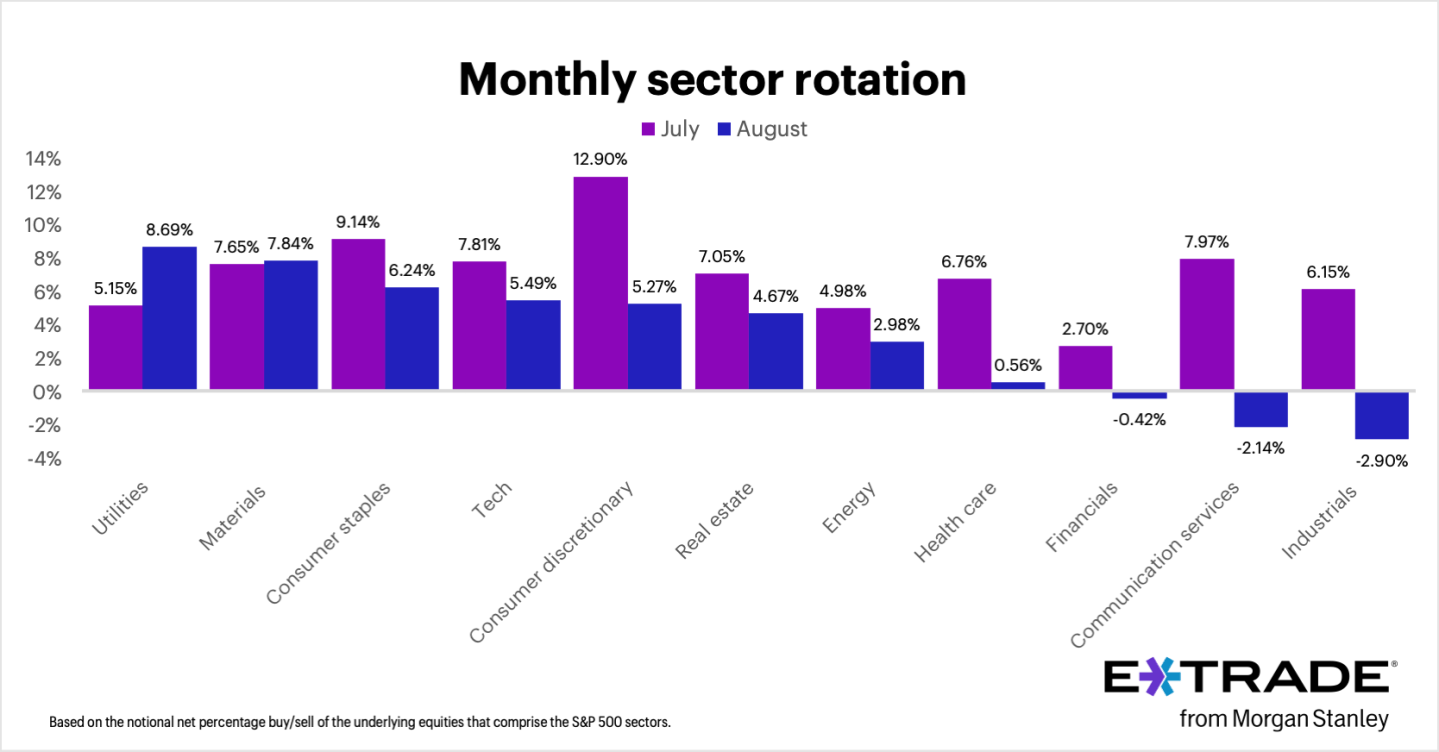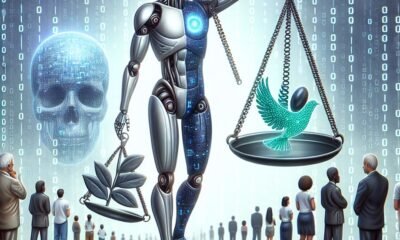Ethics & Policy
Satya Nadella Books: 20 Life-Changing Books Recommended by Microsoft CEO Satya Nadella | Features News

20 Life-Changing Book Recommendations by Microsoft CEO Satya Nadella (Picture Credit – Instagram and Microsoft)
In an era where technology and innovation are constantly reshaping the landscape of our professional and personal lives, staying ahead of the curve is more important than ever. For individuals hoping to successfully manage these changes, Microsoft CEO Satya Nadella’s reading list provides essential insights. Nadella, who is well-known for his revolutionary leadership at Microsoft, has frequently expressed his conviction in the potential of learning from a variety of literature. Below, we look at 20 life-changing books recommended by Nadella that cover technology, leadership, communication, and personal growth, demonstrating the range of his interests and depth of intellectual curiosity.
1. The Moment of Lift by Melinda Gates
In ‘The Moment of Lift,’ Melinda Gates makes a compelling case for the empowerment of women as a pivotal force for global change. Highlighted by Nadella, the book underscores the critical role of gender equality in driving technological and social progress, presenting a unifying call to action that is both inspiring and necessary for the betterment of society.
2. Nonviolent Communication by Marshall B. Rosenberg
Marshall B. Rosenberg’s ‘Nonviolent Communication’ introduces a groundbreaking approach to dialogue that prioritizes empathy and mutual respect. Nadella praises this work for its transformative potential in leadership and organizational culture, advocating for its principles as foundational to building trust and fostering open, transparent communication within teams and broader communities.
3. The Boys in the Boat by Daniel James Brown
Daniel James Brown’s ‘The Boys in the Boat’ recounts the remarkable journey of the University of Washington’s 1936 Olympic rowing team, capturing the spirit of unity and determination. Nadella finds deep resonance with the book’s message of collaboration and resilience, illustrating how collective effort and mutual support are key to achieving extraordinary outcomes.
4. Deep Learning by Ian Goodfellow, Yoshua Bengio, and Aaron Courville
‘Deep Learning’ offers a comprehensive dive into the complex world of AI, making it accessible for both experts and novices alike. Nadella recommends this book for its detailed exploration of deep learning technologies, emphasizing its importance for those looking to understand or work within the rapidly evolving landscape of artificial intelligence and machine learning.
5. Mindset by Dr. Carol S. Dweck
Carol S. Dweck’s ‘Mindset’ reveals the transformative power of our beliefs in shaping our abilities and achieving our potential. Nadella attributes this book as a key influence on Microsoft’s cultural shift towards growth and learning, highlighting its insights into how adopting a growth mindset can drive personal development, innovation, and success in every aspect of life.
6. The Great Transformation by Karl Polanyi
Karl Polanyi’s seminal work, ‘The Great Transformation,’ provides a profound analysis of the industrial revolution and its societal impacts. Nadella draws from Polanyi’s insights to navigate the complexities of contemporary technological and economic transformations, emphasizing the book’s relevance in understanding and managing the effects of rapid change on society and industry alike.
7. Shaping the Future of the Fourth Industrial Revolution by Klaus Schwab
In ‘Shaping the Future of the Fourth Industrial Revolution,’ Klaus Schwab offers a visionary perspective on the technological advances reshaping our world. Nadella appreciates this book for its comprehensive discussion on the ethical implications of innovation, advocating for a balanced approach to technological development that prioritizes human values and societal well-being.
8. No Rules Rules: Netflix and the Culture of Reinvention by Reed Hastings and Erin Meyer
Reed Hastings and Erin Meyer’s ‘No Rules Rules’ delves into the culture behind Netflix’s success, highlighting its unconventional approach to workplace flexibility and innovation. Nadella sees this exploration as emblematic of the adaptive leadership necessary for thriving in dynamic industries, underscoring the value of fostering a culture that embraces change and creativity.
9. An Astronaut’s Guide to Life on Earth by Chris Hadfield
Chris Hadfield’s ‘An Astronaut’s Guide to Life on Earth’ offers a unique perspective on life lessons learned in space that apply to everyday challenges. Nadella admires Hadfield’s emphasis on preparation, resilience, and the importance of maintaining a positive outlook, aligning with his own leadership philosophy that views obstacles as opportunities for growth.
10. Competing in the Age of AI by Marco Iansiti and Karim R. Lakhani
‘Competing in the Age of AI’ by Marco Iansiti and Karim R. Lakhani explores the transformative impact of artificial intelligence on business strategies. Nadella recommends this book for its insightful analysis of how AI is reshaping industries, emphasizing the need for companies to adapt their business models to leverage AI effectively and sustain competitive advantage in a rapidly evolving digital landscape.
11. AI Superpowers by Kai-Fu Lee
Kai-Fu Lee’s ‘AI Superpowers’ presents a nuanced look at the competitive landscape of global AI development and its broad implications. Nadella values Lee’s insights for their relevance to leaders steering their organizations through technological upheavals, emphasizing the book’s exploration of AI’s impact on the economy, society, and the future of work in a globally connected world.
12. The Narrow Corridor by Daron Acemoglu and James A. Robinson
In ‘The Narrow Corridor,’ Acemoglu and Robinson investigate the delicate balance between liberty and state control, offering a compelling framework for understanding governance amidst rapid technological change. Nadella appreciates this book for its thoughtful analysis of maintaining human rights and freedom in an era where technology increasingly intersects with power and governance.
13. Prosperity by Colin Mayer
Colin Mayer’s ‘Prosperity’ delves into the critical role corporations play in fostering economic growth and social welfare. Nadella is drawn to Mayer’s argument that businesses can be a force for good, aligning with his belief in the potential of technology companies, like Microsoft, to address and solve pressing societal challenges through responsible innovation and leadership.
14. Tools and Weapons by Brad Smith and Carol Ann Browne
‘Tools and Weapons,’ co-authored by Brad Smith, offers an insider’s perspective on the ethical dilemmas posed by digital technology. Nadella champions the book for its balanced view on technology’s capacity to innovate and disrupt, reflecting his commitment to navigating these challenges with a keen sense of moral responsibility and advocating for a tech future that benefits all.
15. Play Nice But Win by Michael Dell
Michael Dell’s ‘Play Nice But Win’ combines personal narrative with practical business wisdom, charting Dell’s journey in reshaping the tech industry. Nadella finds resonance in Dell’s ethos of competitive spirit balanced with ethical conduct. The book’s blend of innovation, perseverance, and integrity mirrors Nadella’s own leadership approach at Microsoft, emphasizing the importance of winning the right way.
16. The Rise and Fall of American Growth by Robert J. Gordon
Robert J. Gordon’s comprehensive study, ‘The Rise and Fall of American Growth,’ delves into the evolution of the American economy, identifying key innovation phases and their impacts. Nadella finds the book’s historical perspective enlightening, providing a backdrop for Microsoft’s innovation strategies in the context of broader economic trends and challenges.
17. The New Leadership Literacies by Bob Johansen
Bob Johansen’s ‘The New Leadership Literacies’ explores essential skills for navigating the future’s unpredictability. Nadella is drawn to Johansen’s foresight on leadership in a rapidly changing world, particularly the emphasis on vision, flexibility, and resilience. This book aligns with Nadella’s approach to leading Microsoft through transformation by anticipating and adapting to future challenges.
18. Masters of Scale by Reid Hoffman
In ‘Masters of Scale,’ Reid Hoffman shares insights from leading entrepreneurs about scaling businesses amidst technological change. Nadella appreciates the book for its actionable strategies on growth, innovation, and leadership, seeing it as a valuable guide for steering Microsoft through competitive landscapes while fostering a culture of continuous innovation and scale.
19. The Great Convergence by Richard Baldwin
Richard Baldwin’s ‘The Great Convergence’ analyzes the shifting paradigms of global trade and economics in the digital era. Nadella considers Baldwin’s insights crucial for understanding globalization’s new dynamics, helping to shape Microsoft’s strategies in leveraging digital technologies for global impact, connectivity, and transformation in a rapidly evolving digital economy.
20. AI 2041: Ten Visions for Our Future by Kai-Fu Lee and Chen Qiufan
‘AI 2041’ blends science fiction with expert analysis to project the future of AI over the next two decades. Nadella recommends this book for its creative and thought-provoking visions of how AI might shape our society, emphasizing the importance of preparing for and ethically guiding the technological advances that will define the future landscape.
Satya Nadella’s broad reading choice reflects both his work as CEO of one of the world’s most powerful technology businesses and his belief in the power of ideas to shape the future. These books give a road map for navigating the complexity of the modern world, from understanding the technical depth of AI and deep learning to investigating the human aspects of leadership, communication, and societal change. They provide insights into developing a growth mentality, the value of ethical leadership, and technology’s transformative power, all of which are key to Nadella’s vision for Microsoft and the broader digital ecosystem. Nadella’s ideas are a wonderful resource for professionals, leaders, and thinkers of all fields looking to stimulate innovation, drive change, and make a meaningful impact in today’s quickly changing market.
Ethics & Policy
Tech leaders in financial services say responsible AI is necessary to unlock GenAI value

Good morning. CFOs are increasingly responsible for aligning AI investments with business goals, measuring ROI, and ensuring ethical adoption. But is responsible AI an overlooked value creator?
Scott Zoldi, chief analytics officer at FICO and author of more than 35 patents in responsible AI methods, found that many customers he’s spoken to lacked a clear concept of responsible AI—aligning AI ethically with an organizational purpose—prompting an in-depth look at how tech leaders are managing it.
According to a new FICO report released this morning, responsible AI standards are considered essential innovation enablers by senior technology and AI leaders at financial services firms. More than half (56%) named responsible AI a leading contributor to ROI, compared to 40% who credited generative AI for bottom-line improvements.
The report, based on a global survey of 254 financial services technology leaders, explores the dynamic between chief AI/analytics officers—who focus on AI strategy, governance, and ethics—and CTOs/CIOs, who manage core technology operations and alignment with company objectives.
Zoldi explained that, while generative AI is valuable, tech leaders see the most critical problems and ROI gains arising from responsible AI and true synchronization of AI investments with business strategy—a gap that still exists in most firms. Only 5% of respondents reported strong alignment between AI initiatives and business goals, leaving 95% lagging in this area, according to the findings.
In addition, 72% of chief AI officers and chief analytics officers cite insufficient collaboration between business and IT as a major barrier to company alignment. Departments often work from different metrics, assumptions, and roadmaps.
This difficulty is compounded by a widespread lack of AI literacy. More than 65% said weak AI literacy inhibits scaling. Meanwhile, CIOs and CTOs report that only 12% of organizations have fully integrated AI operational standards.
In the FICO report, State Street’s Barbara Widholm notes, “Tech-led solutions lack strategic nuance, while AI-led initiatives can miss infrastructure constraints. Cross-functional alignment is critical.”
Chief AI officers are challenged to keep up with the rapid evolution of AI. Mastercard’s chief AI and data officer, Greg Ulrich, recently told Fortune that last year was “early innings,” focused on education and experimentation, but that the role is shifting from architect to operator: “We’ve moved from exploration to execution.”
Across the board, FICO found that about 75% of tech leaders surveyed believe stronger collaboration between business and IT leaders, together with a shared AI platform, could drive ROI gains of 50% or more. Zoldi highlighted the problem of fragmentation: “A bank in Australia I visited had 23 different AI platforms.”
When asked about innovation enablers, 83% of respondents rated cross-departmental collaboration as “very important” or “critical”—signaling that alignment is now foundational.
The report also stresses the importance of human-AI interaction: “Mature organizations will find the right marriage between the AI and the human,” Zoldi said. And that involves human understanding for where to ”best place AI in that loop,” he said.
Sheryl Estrada
sheryl.estrada@fortune.com
Leaderboard
Brian Robins was appointed CFO of Snowflake (NYSE: SNOW), an AI Data Cloud company, effective Sept. 22. Snowflake also announced that Mike Scarpelli is retiring as CFO. Scarpelli will stay a Snowflake employee for a transition period. Robins has served as CFO of GitLab Inc., a technology company, since October 2020. Before that, he was CFO of Sisense, Cylance, AlienVault, and Verisign.
Big Deal
August marked the S&P 500’s fourth consecutive month of gains, with E*TRADE clients net buyers in eight out of 11 sectors, Chris Larkin, managing director of trading and investing, said in a statement. “But some of that buying was contrarian and possibly defensive,” Larkin noted. “Clients rotated most into utilities, a defensive sector that was actually the S&P 500’s weakest performer last month. Another traditionally defensive sector, consumer staples, received the third-most net buying.” By contrast, clients were net sellers in three sectors—industrials, communication services, and financials—which have been among the S&P 500’s stronger performers so far this year.
“Given September’s history as the weakest month of the year for stocks, it’s possible that some investors booked profits from recent winners while increasing positions in defensive areas of their portfolios,” Larkin added.

Going deeper
“Warren Buffett’s $57 billion face-plant: Kraft Heinz breaks up a decade after his megamerger soured” is a Fortune report by Eva Roytburg.
From the report: “Kraft Heinz, the packaged-food giant created in 2015 by Warren Buffett and Brazilian private equity firm 3G Capital, is officially breaking up. The Tuesday announcement ends one of Buffett’s highest-profile bets—and one of his most painful—as the merger that once promised efficiency and dominance instead wiped out roughly $57 billion, or 60%, in market value. Shares slid 7% after the announcement, and Berkshire Hathaway still owns a 27.5% stake.” You can read the complete report here.
Overheard
“Effective change management is the linchpin of enterprise-wide AI implementation, yet it’s often underestimated. I learned this first-hand in my early days as CEO at Sanofi.”
—Paul Hudson, CEO of global healthcare company Sanofi since September 2019, writes in a Fortune opinion piece. Previously, Hudson was CEO of Novartis Pharmaceuticals from 2016 to 2019.
Ethics & Policy
Humans at Core: Navigating AI Ethics and Leadership

Hyderabad recently hosted a vital dialogue on ‘Human at Core: Conversations on AI, Ethics and Future,’ co-organized by IILM University and The Dr Pritam Singh Foundation at Tech Mahindra, Cyberabad. Gathering prominent figures from academia, government, and industry, the event delved into the ethical imperatives of AI and human-centric leadership in a tech-driven future.
The event commenced with Sri Gaddam Prasad Kumar advocating for technology as a servant to humanity, followed by a keynote from Sri Padmanabhaiah Kantipudi, who addressed the friction between rapid technological growth and ethical governance. Two pivotal panels explored the crossroads of AI’s progress versus principle and leadership’s critical role in AI development.
Key insights emerged around empathy and foresight in AI’s evolution, as leaders like Manoj Jha and Rajesh Dhuddu emphasized. Dr. Ravi Kumar Jain highlighted the collective responsibility to steer innovation wisely, aligning technological advancement with human values. The event reinforced the importance of cross-sector collaboration to ensure technology enhances equity and dignity globally.
Ethics & Policy
IILM University and The Dr Pritam Singh Foundation Host Round Table Conference on “Human at Core” Exploring AI, Ethics, and the Future

Hyderabad (Telangana) [India], September 4: IILM University, in collaboration with The Dr Pritam Singh Foundation, hosted a high-level round table discussion on the theme “Human at Core: Conversations on AI, Ethics and Future” at Tech Mahindra, Cyberabad, on 29th August 2025. The event brought together distinguished leaders from academia, government, and industry to engage in a timely and thought-provoking dialogue on the ethical imperatives of artificial intelligence and the crucial role of human-centric leadership in shaping a responsible technological future. The proceedings began with an opening address by Sri Gaddam Prasad Kumar, Speaker, Telangana Legislative Assembly, who emphasised the need to ensure that technology remains a tool in the service of humanity. This was followed by a keynote address delivered by Sri Padmanabhaiah Kantipudi, IAS (Retd.), Chairman of the Administrative Staff College of India (ASCI), who highlighted the growing tension between technological acceleration and ethical oversight.
The event featured two significant panel discussions, each addressing the complex intersections between technology, ethics, and leadership. The first panel, moderated by Mamata Vegunta, Executive Director and Head of HR at DBS Tech India, examined the question, “AI’s Crossroads: The Choice Between Progress and Principle.” The discussion reflected on the critical junctures at which leaders must make choices that balance innovation with responsibility. Panellists, including Deepak Gowda of the Union Learning Academy, Dr. Deepak Kumar of IDRBT, Srini Vudumula of Novelis Consulting, and Gaurav Maheshwari of Signode India Limited, shared their insights on the pressing need for robust ethical frameworks that evolve alongside AI.
The second panel, moderated by Vinay Agrawal, Global Head of Business HR at Tech Mahindra, focused on the theme “Human-Centred AI: Why Leadership Matters More Than Ever.” This session brought to light the growing expectation of leaders to act not just as enablers of technological progress, but as custodians of its impact. Panellists Manoj Jha from Makeen Energy, Dr Anadi Pande from Mahindra University, Rajesh Dhuddu of PwC, and Kiranmai Pendyala, investor and former UWH Chairperson, collectively underlined the importance of empathy, accountability, and foresight in guiding AI development.
Speaking at the event, Dr Ravi Kumar Jain, Director, School of Management – IILM University Gurugram, remarked, “We are at a defining moment in human history, where the question is not merely about how fast we can innovate, but how wisely we choose to do so. At IILM, we believe in nurturing leaders who are not only competent but also conscious of their responsibilities to society.” His sentiments were echoed by Prof Harivansh Chaturvedi, Director General at IILM Lodhi Road, who affirmed the university’s continued commitment to promoting responsible leadership through dialogue, collaboration, and critical inquiry. Across both panels, there was a shared recognition that ethical leadership must keep pace with the rapid transformations driven by AI, and that collaborative efforts across sectors will be essential to ensure that innovation serves the broader goals of equity, dignity, and humanity.
The discussions concluded with a renewed call to action for academic institutions, industry leaders, and policymakers to work together in shaping a future where technology empowers without eroding core human values. In doing so, the event reaffirmed the central message behind its theme that in an increasingly digital world, it is important now more than ever to keep it human at the core.
(Disclaimer: The above press release comes to you under an arrangement with PNN and PTI takes no editorial responsibility for the same.). PTI PWR
(This content is sourced from a syndicated feed and is published as received. The Tribune assumes no responsibility or liability for its accuracy, completeness, or content.)
-

 Business6 days ago
Business6 days agoThe Guardian view on Trump and the Fed: independence is no substitute for accountability | Editorial
-
Tools & Platforms3 weeks ago
Building Trust in Military AI Starts with Opening the Black Box – War on the Rocks
-

 Ethics & Policy1 month ago
Ethics & Policy1 month agoSDAIA Supports Saudi Arabia’s Leadership in Shaping Global AI Ethics, Policy, and Research – وكالة الأنباء السعودية
-

 Events & Conferences4 months ago
Events & Conferences4 months agoJourney to 1000 models: Scaling Instagram’s recommendation system
-

 Jobs & Careers2 months ago
Jobs & Careers2 months agoMumbai-based Perplexity Alternative Has 60k+ Users Without Funding
-

 Education2 months ago
Education2 months agoVEX Robotics launches AI-powered classroom robotics system
-

 Funding & Business2 months ago
Funding & Business2 months agoKayak and Expedia race to build AI travel agents that turn social posts into itineraries
-

 Podcasts & Talks2 months ago
Podcasts & Talks2 months agoHappy 4th of July! 🎆 Made with Veo 3 in Gemini
-

 Podcasts & Talks2 months ago
Podcasts & Talks2 months agoOpenAI 🤝 @teamganassi
-

 Education2 months ago
Education2 months agoAERDF highlights the latest PreK-12 discoveries and inventions





















